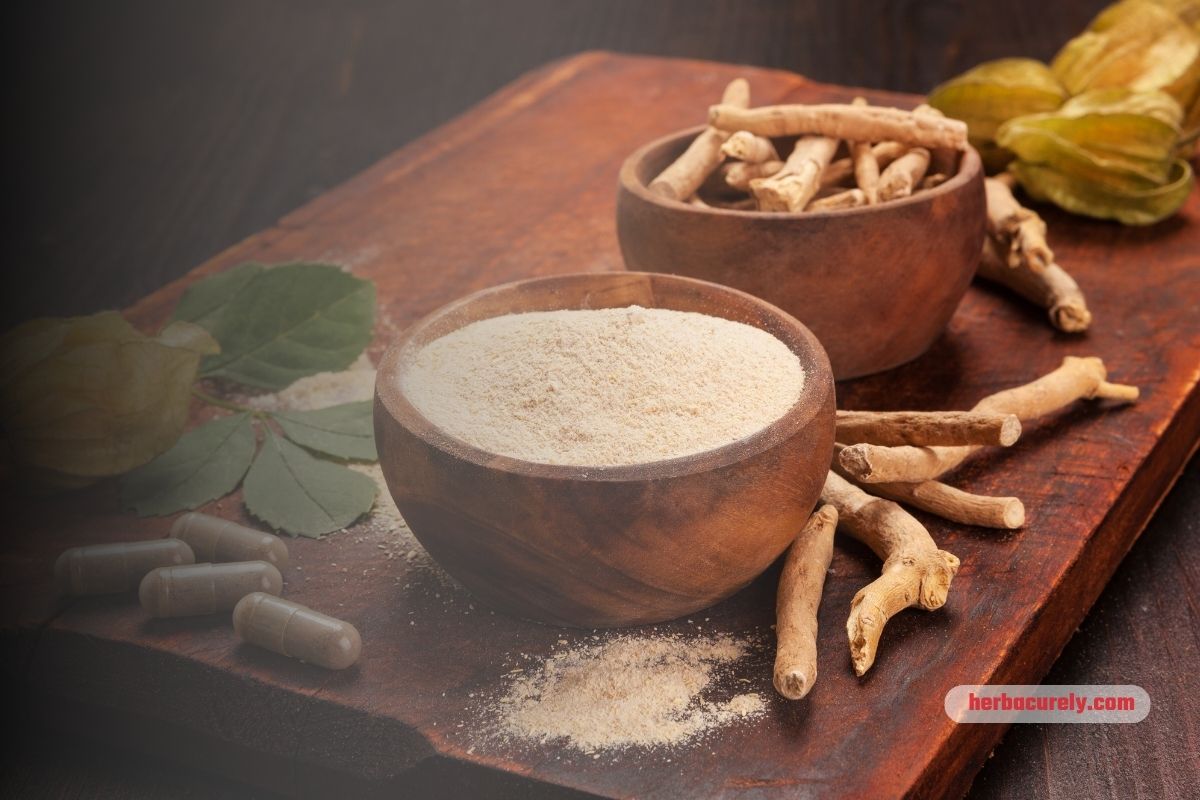Ashwagandha, an ancient medicinal herb rooted in Ayurvedic practices, has gained significant attention for its potential to alleviate anxiety and promote restful sleep. Known scientifically as Withania somnifera, this adaptogenic herb is celebrated for its ability to help the body manage stress, improve mood, and enhance overall well-being. In this comprehensive guide, we’ll explore the ashwagandha benefits for anxiety, its role in improving sleep, and practical tips for incorporating it into your routine.
What Is Ashwagandha?
Ashwagandha, often referred to as “Indian ginseng” or “winter cherry,” is a small shrub native to India, the Middle East, and parts of Africa. Its roots and leaves are used to create supplements that have been employed for centuries to address a variety of health concerns. As an adaptogen, ashwagandha helps the body adapt to stress by balancing physiological processes, making it a popular natural remedy for anxiety and sleep issues.
Key Benefits of Ashwagandha
- Reduces Stress and Anxiety: Ashwagandha is known for its calming effects, helping to lower cortisol levels, the hormone associated with stress.
- Promotes Better Sleep: Its soothing properties can improve sleep quality and help with insomnia.
- Supports Mental Clarity: By reducing stress, ashwagandha may enhance focus and cognitive function.
- Boosts Overall Wellness: It supports immune health, energy levels, and hormonal balance.
Ashwagandha Benefits for Anxiety
One of the most well-researched benefits of ashwagandha is its ability to reduce anxiety. Chronic stress and anxiety can disrupt daily life, leading to physical and mental health challenges. Ashwagandha’s adaptogenic properties help regulate the body’s stress response, offering a natural way to find calm.
How Ashwagandha Reduces Anxiety
- Lowers Cortisol Levels: Studies have shown that ashwagandha can significantly reduce cortisol levels, which are often elevated in individuals experiencing chronic stress or anxiety. A 2019 study published in Medicine found that participants taking ashwagandha supplements experienced a notable decrease in cortisol compared to a placebo group.
- Balances Neurotransmitters: Ashwagandha may influence neurotransmitters like GABA (gamma-aminobutyric acid), which promotes relaxation and reduces overactive brain activity associated with anxiety.
- Improves Mood: By stabilizing stress hormones, ashwagandha can enhance mood and reduce symptoms of anxiety and depression.
Scientific Evidence
A 2014 study in the Journal of Alternative and Complementary Medicine found that participants with anxiety who took 600 mg of ashwagandha extract daily for 60 days reported a 77% reduction in anxiety symptoms compared to a placebo group. Another study in 2021 highlighted ashwagandha’s ability to improve stress resilience, further supporting its role in anxiety management.
Ashwagandha for Better Sleep
Sleep disorders, including insomnia, are often linked to stress and anxiety. Ashwagandha’s calming effects make it a promising natural remedy for improving sleep quality and helping you fall asleep faster.
How Ashwagandha Promotes Sleep
- Reduces Stress-Induced Insomnia: By lowering cortisol levels, ashwagandha helps calm the mind, making it easier to fall asleep.
- Enhances GABA Activity: Ashwagandha’s influence on GABA receptors promotes relaxation, which is essential for restful sleep.
- Regulates Sleep-Wake Cycles: Its adaptogenic properties help balance the body’s circadian rhythm, supporting consistent sleep patterns.
Research on Ashwagandha and Sleep
A 2020 study published in Sleep Medicine found that participants taking ashwagandha root extract experienced improved sleep quality and reduced sleep onset latency (the time it takes to fall asleep). Another study indicated that ashwagandha supplementation led to longer sleep duration and fewer nighttime awakenings.
How to Use Ashwagandha for Anxiety and Sleep
Incorporating ashwagandha into your routine is simple, but it’s important to use it correctly to maximize its benefits. Here are practical tips for using ashwagandha effectively:
1. Choose the Right Form
Ashwagandha is available in several forms, including:
- Capsules or Tablets: Convenient and pre-dosed, ideal for consistent use.
- Powder: Can be mixed into smoothies, teas, or warm milk for a calming bedtime ritual.
- Tinctures: Liquid extracts that can be added to water or juice.
- Tea: Ashwagandha tea blends are soothing and easy to incorporate into your evening routine.
2. Recommended Dosage
Dosage varies depending on the form and concentration of ashwagandha. General guidelines include:
- Capsules/Tablets: 300–600 mg of standardized ashwagandha extract (containing 5–10% withanolides) once or twice daily.
- Powder: 1–2 teaspoons mixed into a beverage, taken once or twice daily.
- Tincture: Follow the manufacturer’s instructions, typically 10–20 drops in water.
Note: Always start with a lower dose and consult a healthcare professional to determine the right dosage for you.
3. Best Time to Take Ashwagandha
- For Anxiety: Take ashwagandha in the morning or early afternoon to manage stress throughout the day.
- For Sleep: Take it 30–60 minutes before bedtime to promote relaxation and better sleep.
4. Combining with Other Practices
To enhance ashwagandha’s effects, pair it with stress-reducing practices such as:
- Meditation or Mindfulness: Helps amplify ashwagandha’s calming benefits.
- Regular Exercise: Physical activity complements ashwagandha’s stress-relieving properties.
- Healthy Sleep Hygiene: Maintain a consistent sleep schedule and create a relaxing bedroom environment.
Potential Side Effects and Precautions
While ashwagandha is generally safe for most people, some may experience mild side effects, such as:
- Digestive upset (nausea, diarrhea)
- Drowsiness
- Headaches
Who Should Avoid Ashwagandha?
- Pregnant or Breastfeeding Women: Consult a doctor, as ashwagandha’s safety during pregnancy is not well-established.
- People with Autoimmune Conditions: Ashwagandha may stimulate the immune system, potentially worsening conditions like lupus or rheumatoid arthritis.
- Those on Certain Medications: Ashwagandha may interact with sedatives, thyroid medications, or immunosuppressants.
Always consult a healthcare provider before starting ashwagandha, especially if you have underlying health conditions or are taking medications.
Choosing a High-Quality Ashwagandha Supplement
To ensure you’re getting the full benefits of ashwagandha, select a high-quality product:
- Look for Standardization: Choose supplements standardized to contain 5–10% withanolides, the active compounds in ashwagandha.
- Check for Third-Party Testing: Ensures purity and potency.
- Opt for Reputable Brands: Trusted brands often provide transparent ingredient sourcing and manufacturing practices.
FAQs About Ashwagandha for Anxiety and Sleep
How long does it take for ashwagandha to work for anxiety?
Ashwagandha may start reducing anxiety within a few weeks, with noticeable effects often reported after 4–8 weeks of consistent use.
Can I take ashwagandha every day?
Yes, ashwagandha is generally safe for daily use, but follow recommended dosages and consult a healthcare provider for long-term use.
Does ashwagandha make you sleepy?
Ashwagandha promotes relaxation and may cause mild drowsiness, especially when taken in the evening or at higher doses.
Can ashwagandha be combined with other supplements?
Ashwagandha can often be combined with supplements like magnesium or L-theanine for enhanced relaxation, but consult a doctor to avoid interactions.
Conclusion
Ashwagandha is a powerful natural remedy for managing anxiety and improving sleep quality. Its adaptogenic properties help reduce stress, lower cortisol levels, and promote relaxation, making it an excellent addition to a holistic wellness routine. By choosing the right form, dosage, and timing, you can harness the ashwagandha benefits for anxiety and sleep to enhance your mental and physical health. Always consult a healthcare professional before starting any new supplement, and pair ashwagandha with healthy lifestyle practices for optimal results.

